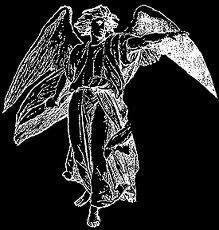With Stalin being friendly, Zinoviev on leave and the Politburo hedging their bets, Trotsky has to be careful. It’s October 1923 and the scheming, rivalry and machinations to take over from the dying Lenin are at their height. Trotsky is favourite; although he has his enemies, Zinoviev among them. Trotsky’s mistake is to go duck shooting.
Having got his feet wet while wearing felt boots, he catches a cold, develops a temperature and spends the rest of the Autumn and Winter ill in bed. Thus, he misses essential meetings, fails to foil plots and begins to lose his influence. As he said later, ‘One can foresee a revolution or a war, but it is impossible to foresee the consequences of an autumn shooting-trip for wild ducks.’
Would anyone write the novel where Trotsky decides to forego the day’s wildfowling, calls Stalin’s bluff when he calls Trotsky the best man for the job, out schemes Zinoviev and Soviet Russia is an entirely different beast?
Possibly, but it sounds like literary fiction to me.
Much counter-factual genre fiction concentrates on exact turning points. Lee wins the battle of Gettysburg. Britain surrenders to Nazi Germany following the blitz. The Duke of Medina Sidonia’s Armada is victorious. (As Phillip II of Spain said, after the winds drove his war fleet onto the rocks, ‘I sent it to fight the English, not God…)
More interesting are those novels that look at the alternate worlds such turning points create. And they succeed or not, for me at least, on how skilfully the turning point is chosen and how plausible the writer makes the world created.
So, why don’t I worship Zoroaster? I
f the Persians had won at Thermopylae in 480BC, sunk the fleet of the City States at Salamis, and not been defeated at Plataea, I wouldn’t be writing this in English with Winchester cathedral behind me. And the date for Thermopylae wouldn’t have BC after it.
The Hellenistic world was John the Baptist to the Roman Empire. Without Constantine and the empire, Christianity would be a footnote in early Zoroastrian studies. I write in English, with its Latin borrowings, using a Western mindset, and drawing on Judeo-Christian ideas because: Although the Persians won at Thermopylae, they lost the cultural war. (And 130 years later, Alexander of Macaedon rubbed salt in the wounds by conquering their empire and spreading Greek culture from modern day Turkey to India.)
Greek culture influenced Roman culture.
Roman culture embraced Christianity. Rome’s empire having spread itself across Europe, ensured Christianity did the same; along with Roman law, Romano-Greek myth and Latin as Europe’s universal language for several centuries. Never mind being responsible for Disney cartoons about Hercules, that Latinised remnant of a Greek borrowing from a Middle Eastern Neolithic shamanistic culture.
Why this fascination with alternate worlds? What makes writers and reader, and some academics, obsessed with realities that literally run counter to fact?
For me, it’s a chance to look at this world, by looking at where we are, as opposed to where we are not, or where we could have been. The interest is not the turning point, but what it births afterwards, sometimes centuries afterwards. We take a hypothetical branching point, were futures are close enough to have a recognisable common ancestor, and consign our reality to the line of historical extinction.
History is how we find ourselves where we are. All our millions of individual histories go to make up that greater history. It’s peopled by ghosts and contains what we’ve learnt, not learnt and simply forgotten.
At its worst, written history is what cultures want to have happened, not what did. Rashamon, on a vast scale. The difference is always between what the victors claim and what the losers say, with the latter often being lost. What really happened is often hard to know to an absolute degree. If only because the records on which we rely are coloured by the original scribe’s subjectivity, the demands of propaganda, and the scribe’s own political sensitivity and sense of self-preservation. And that’s before the culturally-constructed sensitivities of the modern historian kicks in.
